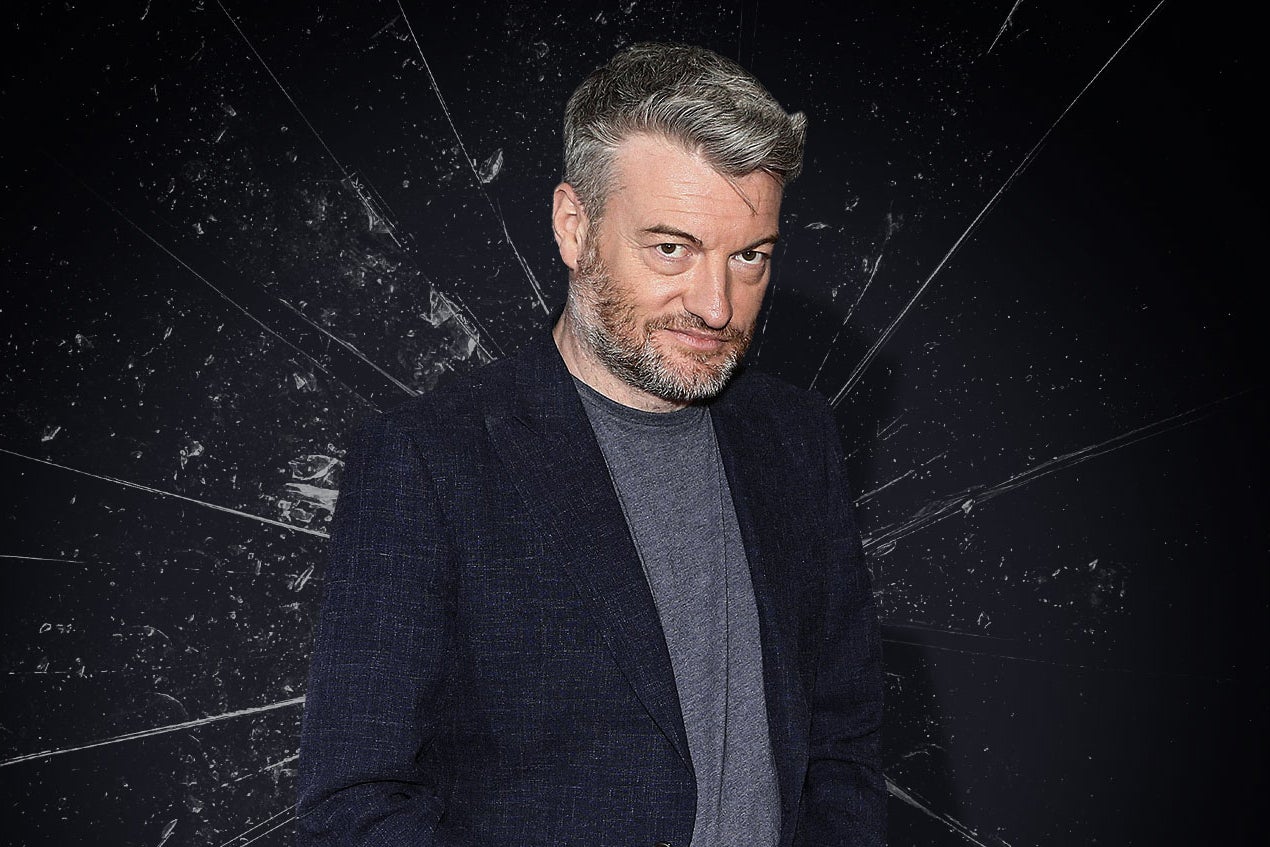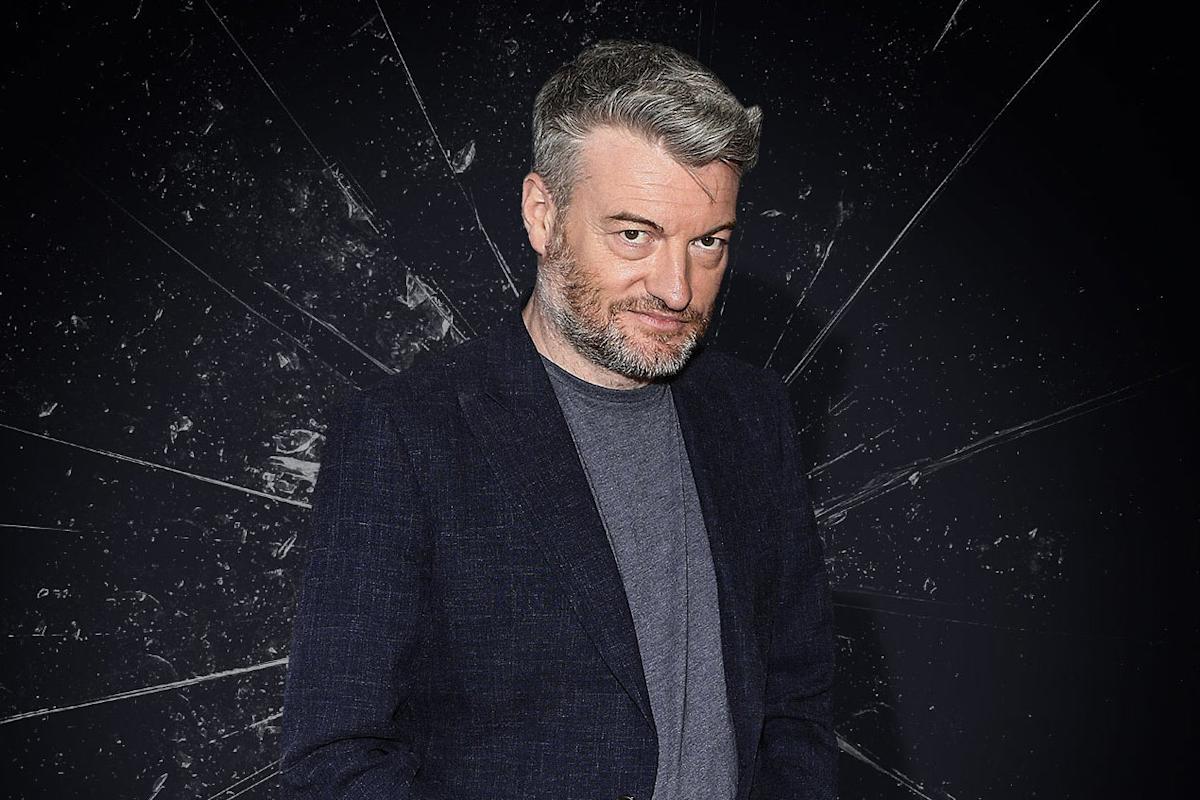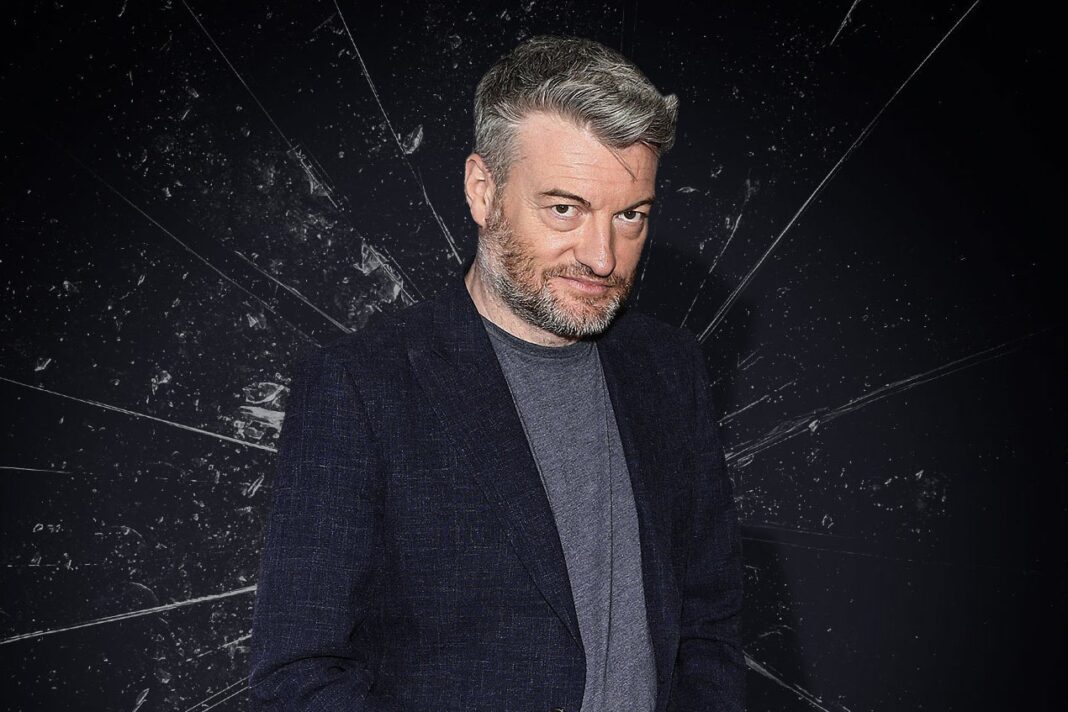Remember that Netflix show everyone was obsessing over? The one that felt like it was in every conversation, every meme, every social media post? The one that somehow managed to simultaneously unite and divide us?

It’s back. But hold on – you might not recognize the name behind its return.
Slate’s new piece throws a spotlight on the show that seemingly took over our lives, revealing a truth many viewers might have missed: the genius behind its impact remains largely unknown.
This isn’t just about name recognition. It’s about the power dynamics of the entertainment industry and how often the people who truly shape our cultural experiences get overshadowed. Get ready to revisit a show that defined a moment, and meet the unsung creator who made it all possible.From Cult Comedy to Dystopian Oracle
Early Career and Transition to Social Commentary

Charlie Brooker’s early career was steeped in British comedy, working on shows like Nathan Barley and Brass Eye. These cult comedies, known for their sharp satire and absurdist humor, established Brooker’s talent for skewering social trends and cultural anxieties. However, Brooker’s interests soon shifted towards exploring darker territory. Shows like Newswipe, Gameswipe, and Screenwipe marked a transition towards social commentary. Brooker utilized these platforms to dissect the media landscape, critiquing everything from news programming and reality television to the gaming industry. This period foreshadowed his future explorations of technology and its impact on society, albeit with a comedic lens.

A British Vision for a Global Audience
The initial seasons of Black Mirror, airing on Channel 4 in the U.K., possessed a distinctly British flavor. The tone was often bleak and cynical, reflecting a particular brand of British humor that embraced the uncomfortable and the absurd. The aesthetic was deliberately low-fi, with gritty visuals and a sense of claustrophobia. Episodes like “The National Anthem,” with its infamous pig-related premise, perfectly encapsulated this early style, pushing boundaries and provoking visceral reactions. The show’s move to Netflix in 2016 ushered in a new era. While maintaining its core themes, Black Mirror underwent a stylistic transformation, becoming more polished and visually arresting. This shift coincided with a broader trend of American streaming platforms influencing the aesthetic of British productions. Some critics argue that this “Americanization” has diluted the show’s original edge, while others contend that it has allowed Black Mirror to reach a wider audience.
The Evolution of Style and Reception
Impact of Netflix
Netflix’s involvement undeniably broadened Black Mirror‘s reach. The show’s global accessibility catapulted it into mainstream consciousness, attracting a diverse viewership and solidifying its status as a cultural phenomenon. However, this increased visibility also brought scrutiny, particularly concerning the show’s evolving style. While Black Mirror‘s early seasons were characterized by their gritty realism and understated horror, later seasons have embraced a more cinematic approach, with heightened visual effects and an emphasis on spectacle.
Shifting Perceptions of “Britishness”
The debate surrounding Black Mirror‘s changing style often intersects with discussions about “Britishness” in television. Some viewers lament the perceived loss of the show’s original, distinctly British flavor, arguing that the slicker production values and more mainstream appeal have come at the expense of its cultural specificity. Others maintain that Black Mirror‘s enduring power lies in its universal themes, which transcend national boundaries. The show’s exploration of technology’s impact on human connection, privacy, and autonomy resonates with audiences worldwide, regardless of their cultural background.
Black Mirror as a Cultural Mirror
Black Mirror, the anthology series created by Charlie Brooker, has become a cultural phenomenon, reflecting the anxieties and concerns surrounding technology in modern society. The show’s impact is evident in its ability to spark conversations and critical thinking about the ethical implications of technological advancements.
Examining the Show’s Commentary on Technology
Black Mirror’s episodes offer a thought-provoking commentary on various aspects of technology, including social media, surveillance, artificial intelligence, and data privacy. The show’s creator, Charlie Brooker, has always been fascinated by the darker side of technology and its potential to shape human behavior.
For instance, the episode “Shut Up and Dance” explores the consequences of online shaming, while “Nosedive” delves into the world of social media and its impact on relationships. These episodes, along with others, demonstrate the show’s ability to highlight the potential risks and consequences of our increasing reliance on technology.
- Episode “Nosedive” (Season 3, Episode 1) explores the world of social media and its impact on relationships.
- Episode “Shut Up and Dance” (Season 3, Episode 3) delves into the consequences of online shaming.
- Episode “Arkangel” (Season 4, Episode 1) explores the concept of surveillance and its impact on personal freedom.
Brooker’s Influence on the Television Landscape
Charlie Brooker’s work on Black Mirror has had a significant impact on the television landscape, influencing other dystopian narratives and shaping the conversation around technology and its implications. The show’s success has also led to a surge in interest in science fiction and speculative fiction, with many writers and creators drawing inspiration from Brooker’s work.
Brooker’s influence extends beyond Black Mirror, with many credit him with helping to popularize the genre of dystopian fiction. His work on the show has also inspired a new generation of writers and creators, who are using their platforms to explore complex themes and ideas.
The Show’s Legacy and Future Potential
Black Mirror’s legacy is a testament to the power of television to shape our understanding of the world and its complexities. The show’s ability to spark conversations and critical thinking has made it a cultural touchstone, with many regarding it as a reflection of our collective anxieties and concerns.
As technology continues to evolve and shape our world, Black Mirror remains a relevant and timely commentary on the potential risks and consequences of our increasing reliance on technology. The show’s future potential is vast, with many speculating about the direction Brooker will take the series in its next season.
Charlie Brooker’s Enduring Influence
Charlie Brooker’s status as a cultural commentator and his ability to anticipate future trends have cemented his position as one of the most influential figures in television. His work on Black Mirror has had a lasting impact on the industry, influencing other creators and shaping the conversation around technology and its implications.
Brooker’s Background and Early Work
Brooker’s early work on cult comedies such as Nathan Barley, Brass Eye, and The 11 O’Clock Show laid the groundwork for his later success with Black Mirror. His experience as a writer and presenter on these shows helped him develop a unique voice and perspective, which he would later bring to the world of science fiction.
Brooker’s work on Newswipe, Gameswipe, and Screenwipe, where he would sit in a drab basement surrounded by jars of peanut butter and half-drunk tea, complaining about things on television, the news, and video games, showcased his ability to think critically and challenge conventional wisdom.
Brooker’s Impact on British Culture
Charlie Brooker’s impact on British culture cannot be overstated. His work on Black Mirror has helped shape the national conversation around technology and its implications, making him a household name in the UK. His influence extends beyond the world of television, with many regarding him as a cultural commentator and a voice for the voiceless.
Brooker’s work on Black Mirror has also helped to promote British culture and talent globally, with the show being broadcast in over 100 countries and attracting a global audience. His influence extends beyond the UK, with many credit him with helping to popularize the genre of dystopian fiction worldwide.
Conclusion
Slate’s article throws a harsh spotlight on a familiar phenomenon: the rise of a show that grips audiences, drives cultural conversation, and ultimately, leaves a trail of pain and disruption in its wake. Yet, the spotlight doesn’t shine on the show itself, but on its creators, whose names remain shrouded in anonymity. This dissonance highlights a growing concern in the entertainment industry: the increasing detachment between the content we consume and the individuals responsible for shaping it.
The article compels us to ask: what are the consequences of this anonymity? Does it diminish the creators’ accountability for the potential harm their work might inflict? Does it erode the sense of connection between audience and artist, leaving us adrift in a sea of entertainment without a human compass? As streaming platforms continue to dominate our media landscape, these questions become increasingly relevant. The future of storytelling, and perhaps even our collective well-being, may depend on our ability to bridge this growing gap and reclaim the human face behind the screen.
Until then, we are left to grapple with the unsettling reality: the most impactful stories are often the ones told without a clear sense of authorship, leaving us to ponder the weight of their impact and the responsibility that comes with consuming them.
